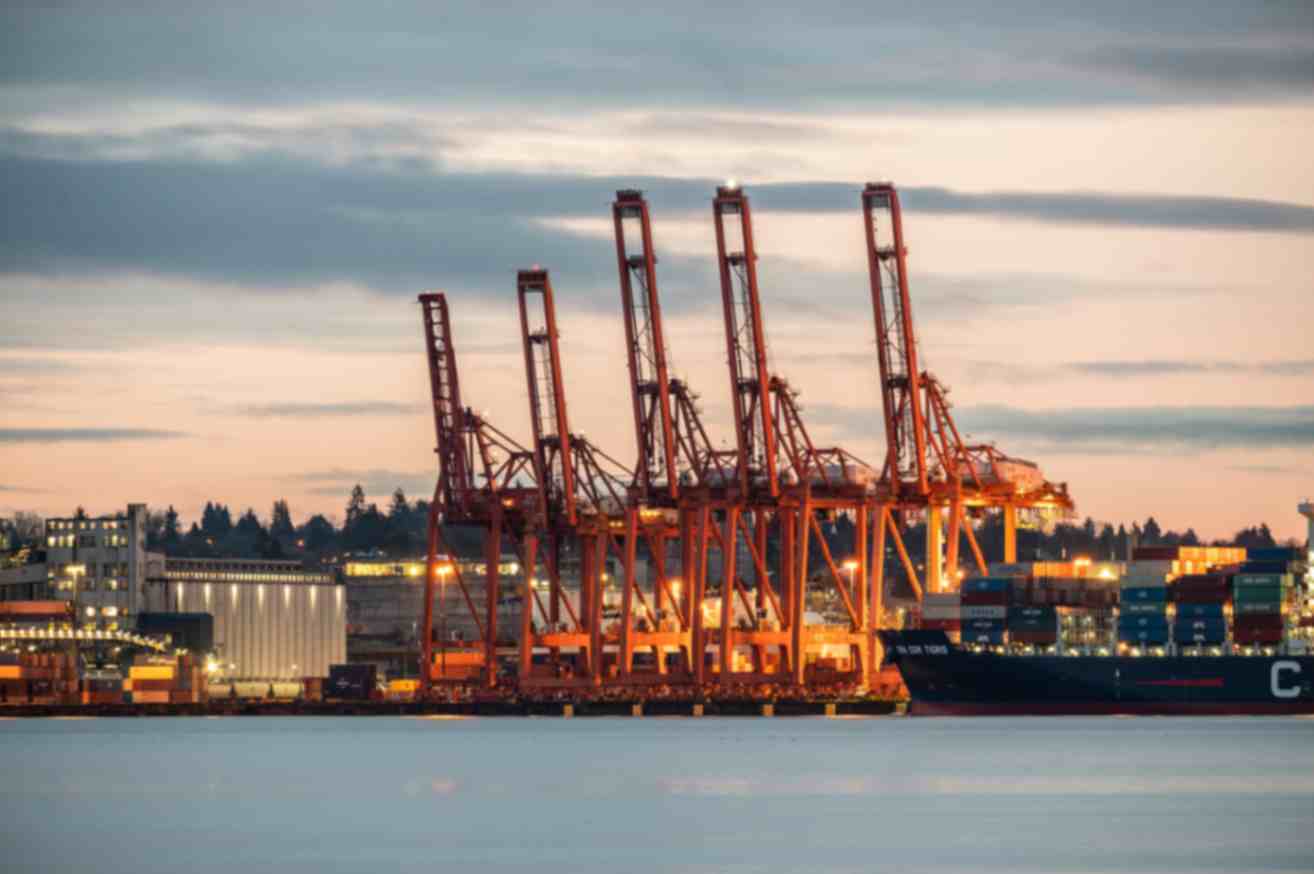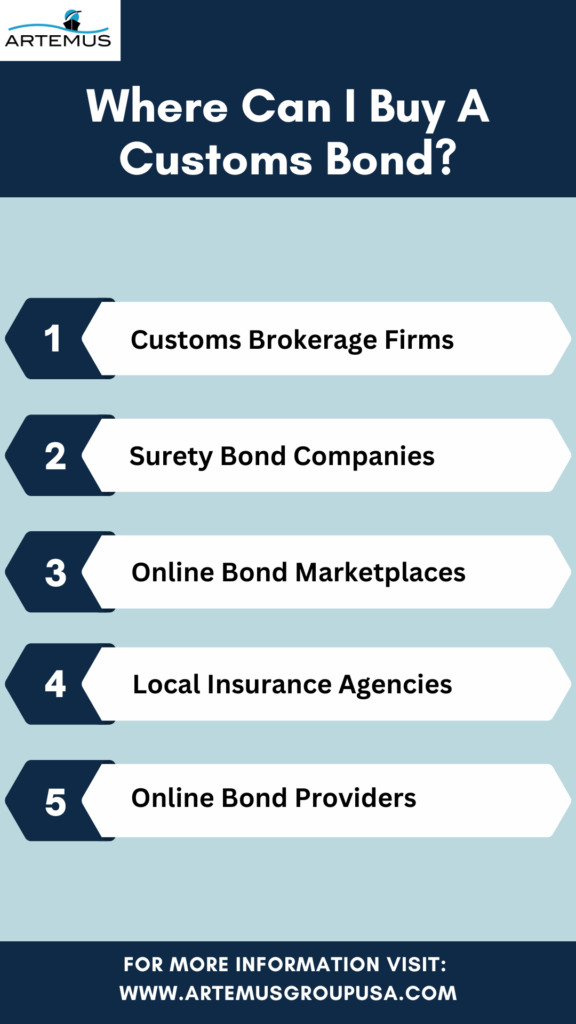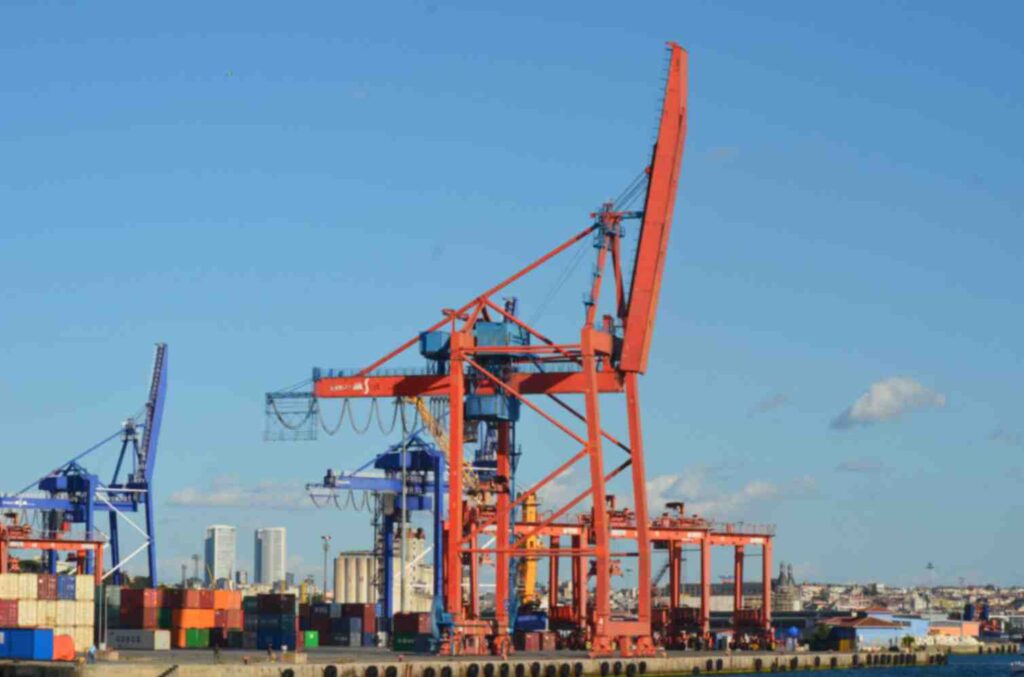
What Is Inbound Logistics & Outbound Logistics? A 2025 Guide
In the dynamic world of supply chain management, understanding the nuances of inbound and outbound logistics is crucial for operational

Embarking on international trade ventures requires more than just the exchange of goods—it demands a profound understanding of regulatory requirements to ensure a smooth and legal passage through customs. One such essential component is the Customs Bond, a financial guarantee that plays a pivotal role in safeguarding the interests of both importers and government authorities.
In this blog, we embark on a journey to explore the question that many importers ponder: “Where can I buy a Customs Bond?” Delving into the intricacies of this crucial financial instrument, we aim to demystify the process and guide you toward reputable sources for securing a Customs Bond.
Moreover, in the ever-evolving landscape of customs compliance, technology emerges as a beacon of efficiency. Artemus Transportation Solutions takes center stage, offering not only insights into acquiring a Customs Bond but also cutting-edge solutions. Their ISF software and customs broker software are tailored to streamline compliance processes, providing importers with the tools they need for seamless navigation through the complexities of international trade regulations.
Table Of Contents
A customs bond is a crucial requirement for businesses engaged in international trade, serving as a financial guarantee between the importer and the government to ensure compliance with customs regulations.
The bond acts as a safeguard, ensuring that duties, taxes, and fees owed to customs authorities will be paid in full and that the importer will adhere to all relevant laws and regulations. By obtaining a customs bond, businesses not only gain clearance for their goods at the border but also demonstrate their commitment to ethical and legal trade practices.
This financial instrument fosters trust between the government and businesses, facilitating smoother cross-border transactions while providing a layer of accountability in the global supply chain.
Related: What Can I Do With A Customs Broker License? A 2024 Guide
Navigating the complex realm of international trade demands a nuanced understanding of customs regulations, and acquiring the right type of customs bond is paramount. Here’s a succinct breakdown of various types of customs bonds:
Related: Customs Broker Exam Registration: In-Person & Remote CBLE
Navigating the intricate landscape of international trade often necessitates the use of customs bonds, vital financial instruments that guarantee compliance with customs regulations, and the fulfillment of financial obligations. Here’s a concise breakdown of who requires these bonds:
Businesses engaged in cross-border trade, whether bringing goods into a country or exporting them, often require customs bonds. These bonds serve as a commitment to adhere to customs laws and ensure the payment of duties and taxes associated with imported or exported goods.
Professionals who facilitate the customs clearance process on behalf of importers require bonds to guarantee their clients’ financial responsibilities and compliance with customs procedures. This ensures a smooth and efficient customs clearance process for their clients.
Carriers, freight forwarders, and other transportation entities involved in the movement of goods across borders typically require customs bonds. These bonds serve as a guarantee that the transportation companies will comply with customs regulations during the transit of goods, assuring customs authorities.
Businesses operating bonded warehouses, where goods are stored under customs supervision, often need bonds. These bonds ensure the proper handling, reporting, and payment of duties and taxes when the goods are withdrawn from the warehouse, maintaining transparency in the customs process.
Companies engaged in the production and distribution of goods internationally may require customs bonds. These bonds facilitate the smooth movement of products across borders and ensure compliance with customs laws, contributing to the efficiency of the supply chain.
Companies utilizing Foreign Trade Zones (FTZs), designated areas where goods can be stored or processed with deferred customs duties, typically need bonds. These bonds guarantee compliance with the regulations governing these zones, allowing businesses to take advantage of the benefits offered by FTZs.
Businesses participating in temporary export activities, such as trade shows or exhibitions, may require bonds like Carnet Bonds. These bonds allow for the duty-free movement of goods during these events, facilitating international showcasing without the immediate financial burden of customs duties and taxes.
Related: How To Find A Customs Broker? 7 Important Factors To Know

When seeking to purchase a customs bond, there are several avenues available to individuals and businesses. Here’s a brief overview:
Many customs brokerage firms offer customs bond services as part of their comprehensive international trade assistance. These firms specialize in navigating customs procedures and can facilitate the acquisition of the appropriate bond for your specific needs.
Specialized surety bond companies are primary sources for obtaining customs bonds. These companies specialize in providing various types of surety bonds, including those required for international trade. Working directly with a surety bond company ensures access to expertise in the field.
The digital age has brought about online bond marketplaces where individuals and businesses can conveniently explore and purchase customs bonds. These platforms often provide a user-friendly interface, allowing customers to compare options and select the most suitable bond for their requirements.
Some local insurance agencies may offer customs bonds as part of their services. While not as specialized as dedicated surety bond companies, local agencies can be a convenient option, particularly for businesses looking for a more personalized, local approach to their insurance and bonding needs.
In the digital age, several online platforms specialize in providing surety bonds, including Customs Bonds. These platforms often streamline the application process, allowing you to obtain a bond efficiently.
Related: What Does A Customs Broker Do? 10 Key Responsibilities
With Artemus Transportation Solutions, compliance becomes a strategic asset, allowing businesses to focus on their core operations while navigating the complexities of international trade with confidence.
Artemus’ ISF software streamlines the Importer Security Filing (ISF) process, ensuring accurate and timely submission of essential information before cargo reaches U.S. ports. This user-friendly solution empowers importers to navigate the complexities of ISF filing seamlessly, enhancing efficiency and reducing the risk of penalties.
For customs brokers, Artemus provides a comprehensive software solution that goes beyond conventional offerings. This platform is a robust tool for managing customs clearance processes, documentation, and communication with relevant authorities. It empowers brokers to stay ahead of regulatory changes and ensures a smooth and compliant flow of goods across borders.
Related: Customs Broker VS Freight Forwarder: 5 Key Differences
The cost of a customs bond varies but typically ranges from $100 to $1,000 annually, depending on factors such as bond type and amount.
Yes, a customs bond is mandatory for businesses involved in importing goods into the United States.
A customs bond typically lasts for one year and must be renewed annually.

In conclusion, obtaining a customs bond can be done through established insurance companies, surety bond providers, licensed customs brokers, or online platforms specializing in bonding services. The key is to choose a provider that complies with regulations and meets the importer’s specific needs, ensuring a smooth and secure international trade process.
Related: How To Become A Customs Broker? A Step-By-Step Journey

In the dynamic world of supply chain management, understanding the nuances of inbound and outbound logistics is crucial for operational

In today’s interconnected world, businesses rely heavily on global trade to expand their markets, access new resources, and drive growth.

Importing goods for resale in the USA presents a lucrative business opportunity, but navigating the complexities of U.S. customs regulations,
Get In Touch
Artemus’ Software Solutions for ISF, AMS, Japan AFR, eManifest Canada, & Panama B2B filings.